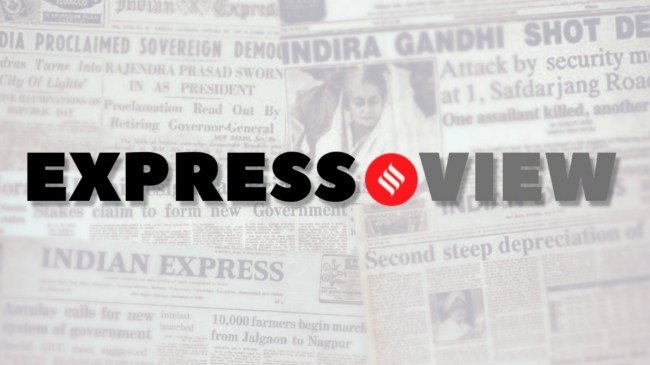Opinion Express View on India and Trump 2.0: Delhi’s challenges
Given India's past trade policy issues with Trump, it must prepare for increased pressure from the US for greater access to its markets and other related matters
 It is premature for India to breathe a sigh of relief that Trump refrained from announcing major tariffs against trading partners, including India. His administration seems poised to adopt a more deliberate and systematic approach to addressing US trade challenges,
It is premature for India to breathe a sigh of relief that Trump refrained from announcing major tariffs against trading partners, including India. His administration seems poised to adopt a more deliberate and systematic approach to addressing US trade challenges, As India processes Donald Trump’s inaugural speech and subsequent executive orders, it must acknowledge that its relationship with the United States cannot continue as before. While Prime Minister Narendra Modi enjoyed a positive rapport with Trump during his first term (2017-2021), and considerable progress was made in bilateral relations, navigating Trump’s return to the White House will not be straightforward. This does not imply any inherent hostility from Trump towards India; however, Delhi now faces challenges stemming from Trump’s clear intent to fundamentally reshape America’s internal and external policies. The developments witnessed in Washington signal a historic shift in three crucial areas for India: Open markets, open borders, and America’s great power relations.
It is premature for India to breathe a sigh of relief that Trump refrained from announcing major tariffs against trading partners, including India. His administration seems poised to adopt a more deliberate and systematic approach to addressing US trade challenges, avoiding immediate punitive measures. Nevertheless, Trump has indicated that tariffs are inevitable in the near future. Given India’s past trade policy issues with Trump, it must prepare for increased pressure from the US for greater access to its markets and other related matters. The Indian commerce bureaucracy is infamous for its lack of creativity and flexibility, making it less than successful in building trade and investment partnerships around the world. It is essential for PM Modi to demand a new strategic approach to trade negotiations with the US. Modi must also temper the ideological bravado in his own party and government that routinely disses ties with the US, romanticises engagement with Russia and China, and promotes loose talk on “dedollarisation”.
Immigration will also pose significant challenges, as Trump has placed it at the forefront of US political priorities. India cannot directly influence the American discourse surrounding legal migration, particularly regarding H-1B visas, amid concerns from US tech companies and labour activists about the exploitation of Indian tech workers. While India is open to repatriating undocumented migrants, facilitating a smooth process requires considerable effort. Given the political weight of this issue in Washington, Delhi must proactively address the efficient identification and deportation of Indian nationals in the US. Lastly, the uncertainty surrounding US relations with Russia and China significantly impacts India’s security. While Delhi welcomes Trump’s normalisation of ties with Moscow, it is wary of any potential agreements with Beijing. India should recognise that the triangular dynamic between the US, China and Russia has fluctuated since its independence. Delhi must accept that as the world’s two foremost economies and military powers, Washington and Beijing will always be open to mutual engagement and understanding. Trump has always been interested in negotiating a grand bargain with China. Losing sleep over US-China ties highlights India’s insecurity and masks the deep structural contradictions between Washington and Beijing. Therefore, it is crucial for India to decisively capitalise on existing opportunities to strengthen its strategic partnership with the US. Traditionally, Delhi has sought to slow down the engagement with Washington when the US steps up its outreach to Beijing. This approach has been self-defeating. A proactive approach to building the partnership with the US will serve as the best safeguard against any changes in US-China ties.






